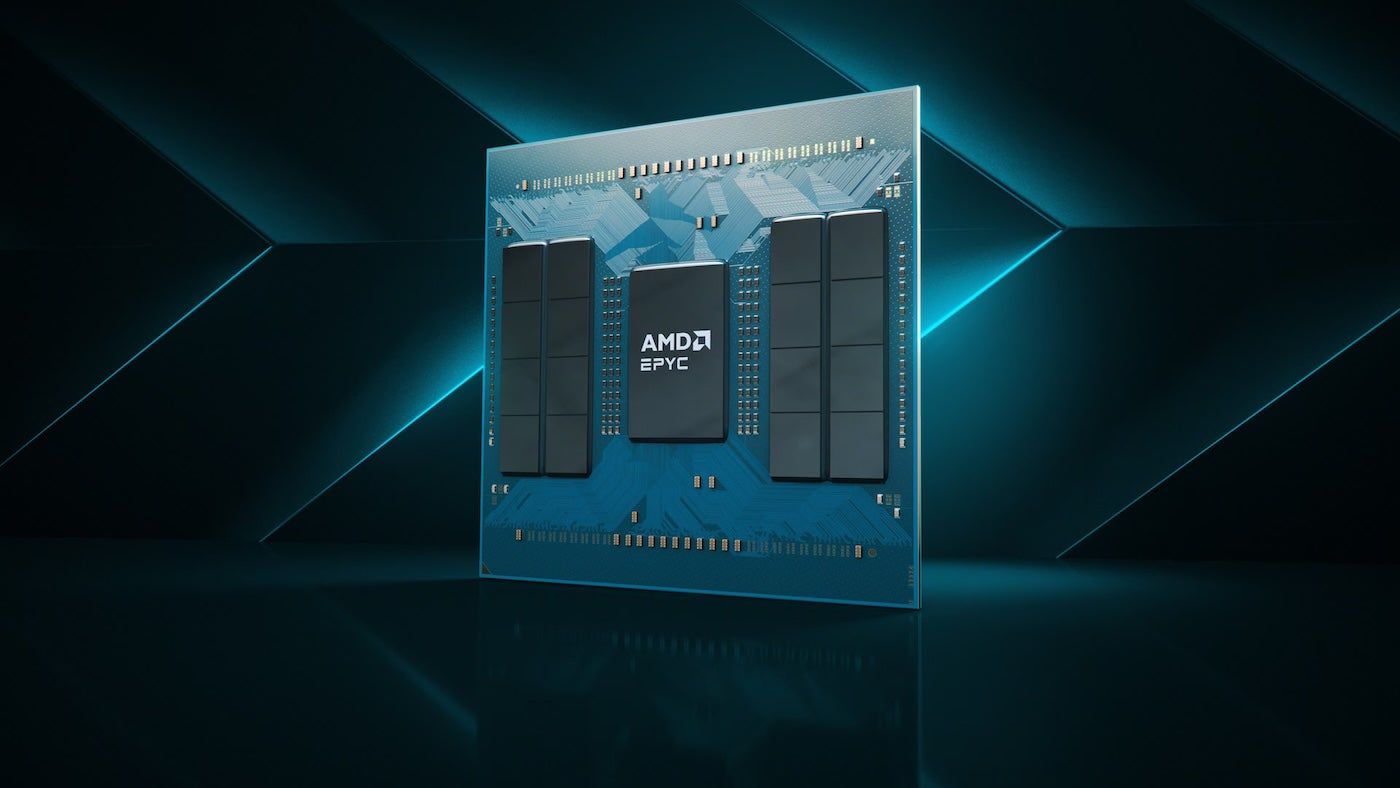AMD on Thursday announced the upcoming launch of its most powerful AI chips to date, the Instinct MI325X accelerators.
“Our goal is to drive an open, industry-standard AI ecosystem so everyone can add their innovation,” said Lisa Su, president and CEO of AMD, at the company's Advancing AI 2024 presentation in San Francisco.
The fifth-generation Epyc processor positions AMD as an underdog contender against NVIDIA's Blackwell in the AI market. During the same presentation, AMD also introduced several new products, including a new server CPU designed for enterprise, AI and cloud applications.
AMD Instinct MI325X Accelerators Add Capacity to AI Infrastructure
AMD Instinct MI325X accelerators accelerate base model training, tuning, and inference—the processes involved in today's rapidly proliferating generative AI—and feature 256GB of HBM3E supporting 6.0TB/s. AMD's CDNA 4 architecture enables the new line.
The capacity and bandwidth of these accelerators exceed those of its main competitor, the NVIDIA H200, AMD claims. The technology company also says that the Instinct MI325X accelerators can accelerate inference performance on the Mistral 7B AI by 1.3 times, on the Llama 3.1 70B by 1.2 times, and on the Mistra Mixtral 8x7B by 1.4 times. comparison with the H200.
AMD is primarily targeting hyperscalers with this product. In particular, hyperscalers want to expand their AI-enabled hardware into data centers and power highly resilient cloud infrastructure.
The Instinct MI325X is scheduled to go on sale in the last quarter of 2024. In the first quarter of 2025, they will appear on devices from Dell Technologies, Eviden, Gigabyte, Hewlett Packard Enterprise, Lenovo and Supermicro. After that, AMD will continue to expand its MI350 series, with the 288GB Instinct MI350 series accelerators expected in the second half of 2025.
AMD Epyc 5th Generation Server CPU includes up to 192 cores
AMD's latest generation of Epyc processors, codenamed “Turin,” also debuted in San Francisco, featuring its Zen 2 Core architecture. AMD Epyc 9005 series processors come in countless configurations (with core counts from eight to 192) and accelerate GPU processing for AI workloads. AMD's main competitor in this area is servers based on Intel Xeon 8592+ CPUs.
Performance density is a key advantage, AMD said. Higher capacity GPUs allow for about 71% less power and about 87% fewer servers to be used in a data center, the company said. AMD provides a disclaimer noting that environmental factors involve many assumptions if they do not apply to a specific use case and location.
SEE: Security researchers found that some scammers make profits with the help of AI-generated videos that can fool facial recognition software.
All Epyc 9005 series processors were launched on Thursday. Cisco, Dell, Hewlett Packard Enterprise, Lenovo, Supermicro and leading ODMs and cloud service providers support the new line of chips.
“With the new AMD Instinct accelerators, EPYC processors and AMD Pensando network engines, the continued growth of our open software ecosystem and the ability to bring all of this together into an optimized AI infrastructure, AMD underscores the critical expertise to build e implement world-class AI. solutions,” Forrest Norrod, executive vice president and general manager of Data Center Solutions Business Group, AMD, said in a press release.
Two new products cover front-end and back-end technology for AI networks
For AI networks in hyperscale environments, AMD developed the Pensando Salina DPU (front-end) and the Pensando Pollara 400 NIC (back-end). The first handles data transfer, delivering it to an AI cluster securely and quickly. The latter, a NIC or network interface card, manages data transfer between accelerators and clusters using a design approved by the Ultra Ethernet Consortium. It is the industry's first AI NIC to do so, AMD said. The DPU supports 400G throughput.
The broader goal of this technology is to enable more organizations to run generative AI on devices, data centers, or in the cloud.
AMD expects both the AMD Pensando Salina DPU and AMD Pensando Pollara 400 NIC to be generally available in the first half of 2025.
Coming soon: Ryzen Pro 300 Series laptops for business use
OEMs will begin shipping laptops with AMD's Ryzen Pro 300 series processors later in 2024. First revealed in June, the Ryzen Pro 300 series is a key component of AI PCs. In particular, they help Microsoft's effort to introduce Copilot+ AI features to its current and future commercial devices.
“Microsoft's partnership with AMD and the integration of Ryzen AI PRO processors into Copilot+ PCs demonstrate our joint focus on delivering impactful AI-powered experiences for our customers,” said Pavan Davuluri, corporate vice president of Windows+ Devices at Microsoft, in a statement. press release.
Lenovo built its ThinkPad T14s Gen 6 AMD around the Ryzen AI PRO 300 series processors. Luca Rossi, president of Lenovo Intelligent Devices Group, spoke about the chips in the press release, saying: “This device offers exceptional AI computing power , enhanced security and exceptional battery life, giving professionals the tools they need to maximize productivity and efficiency.” .”
TechRepublic covered AMD's Advancing AI event remotely.












